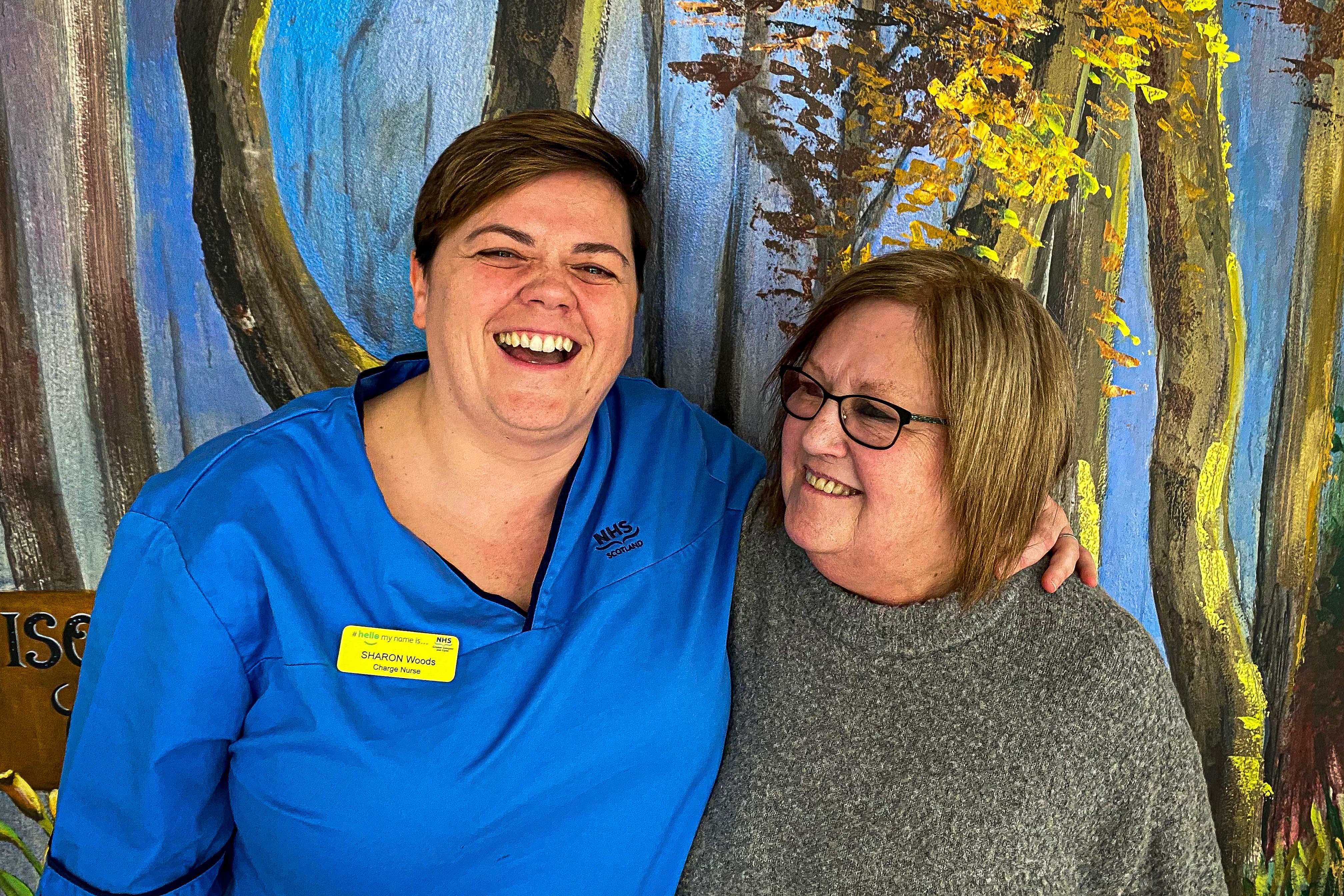NHS worker saved by colleagues after having stroke on stroke ward
Caroline Swan is recovering well after the incident last month.

Your support helps us to tell the story
From reproductive rights to climate change to Big Tech, The Independent is on the ground when the story is developing. Whether it's investigating the financials of Elon Musk's pro-Trump PAC or producing our latest documentary, 'The A Word', which shines a light on the American women fighting for reproductive rights, we know how important it is to parse out the facts from the messaging.
At such a critical moment in US history, we need reporters on the ground. Your donation allows us to keep sending journalists to speak to both sides of the story.
The Independent is trusted by Americans across the entire political spectrum. And unlike many other quality news outlets, we choose not to lock Americans out of our reporting and analysis with paywalls. We believe quality journalism should be available to everyone, paid for by those who can afford it.
Your support makes all the difference.An NHS worker has thanked colleagues for saving her life after she suffered a stroke – while working on a stroke ward.
Caroline Swan, 65, is a healthcare support worker on a stroke rehabilitation ward at the Queen Elizabeth University Hospital in Glasgow.
She was at work when she started showing signs of a stroke on January 26 and a colleague realised something was wrong.
Sharon Woods, 38, a charge nurse at the hospital, recalled: “Caroline was sitting in a chair and just staring.
“When I asked her if she was okay she couldn’t speak. There and then I knew.”
Ms Woods contacted the emergency stroke team before placing Ms Swan on a trolley and running with her to accident and emergency.
This swift action meant her colleague received the necessary treatment within 45 minutes and she began to get her speech back within two hours.
Sharon saved my life - it's as simple as that
Within days, she was feeling better and is now back home in Thornliebank, East Renfrewshire, with her husband Alan.
She has lost her sense of taste, but is focused on getting back to work so she can help others on their rehabilitation journey following a stroke.
Ms Swan said: “Sharon saved my life – it’s as simple as that.
“I was coming out of a room and couldn’t get my glove off. I just kept staring at it and thinking, ‘something’s wrong’.
“I can vaguely remember being put on to a trolley, going through corridors, and then going for a scan.
“I remember then thinking something was really wrong.
“But it honestly feels like my stars were aligned that day.
“I wasn’t even meant to be working, then Sharon found me really quickly and got me the help I needed.
“Because of her and the rest of the team who took care of me, I recovered really well.
“I’ll never be able to thank them enough for what they did for me.”
Ms Swan says the care she received at the hospital was “amazing”, adding: “I thought it would be weird, given that I worked with everyone and I know them so well, but they were brilliant.
“They just treated me like any other patient and looked after me really well. Everyone was so nice, and I felt so safe. I can’t thank them enough.”
Ms Swan, who has two grown-up daughters, says she hopes others will learn the tell-tale signs of a stroke so they can act fast if need be.
Early warnings of stroke include facial weakness, arm weakness, and speech problems.
If a person is unable to smile properly, cannot raise both arms, or are slurring their words, emergency services should be contacted.
Ms Swan said: “I was so glad that I was at work, because of that I was seen quickly, and that was the key thing here.
“Please, if you do anything today, get to know the signs of stroke so you can help others, like Sharon helped me.”
Ms Woods said: “You don’t expect something like this to happen to a colleague, so to begin with I was quite shocked.
“But we take care of people – we’re nurses after all, so that’s what we all did.
“I’m just so glad that everything turned out so well for Caroline.”
Rebecca Fulton, lead nurse for stroke services, said: “I’m so proud of the team.
“Despite the fact the patient in this case was one of our staff, everything just kicked in and people knew exactly what to do.
“In fact, being a close-knit team was probably the critical factor here, and why Caroline has made such a positive recovery.
“I’m delighted that in this case everything worked out so well, and that Caroline will be back with us soon.”